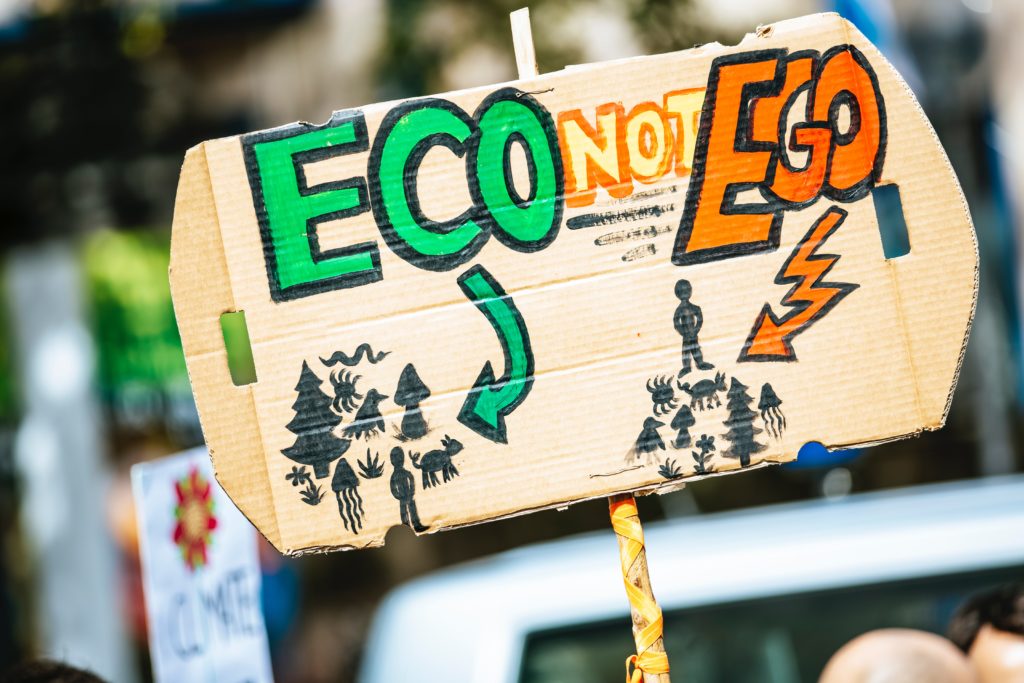4 Mins Read
In a move that was heralded as a sign of the times amid dangerous heat waves and flooding across the globe as a result of climate change, France became the first European country to ban fossil fuel ads. But the environmental group Greenpeace among others, says it provides too much leeway for the industry.
Under the new law, which passed last month, energy products related to fossil fuels including oil, coal, and hydrogen-containing carbons, are banned across France. Penalties include fines ranging from €20,000 and €100,000 with them doubling for repeat offenses.
Fossil fuel ads
The ban was proposed as part of a 150-person assembly in 2019 aimed at reducing exposure to companies that promote fossil fuels linked to climate change. Globally, energy is the leading source of greenhouse gas emissions at more than 30 percent.
But the law is facing backlash from the groups that pushed for its existence in the first place. The environmental group Greenpeace pushed for the legislation several years ago as part the country’s efforts to address climate change.
Now, the group is saying the legislation doesn’t do enough to properly address greenwashing.
“You will read everywhere that advertising for fossil fuels is now prohibited, but that’s not true,” Greenpeace France tweeted after the country announced the ban.

“Ads for gas can continue, patronage, sponsorship, institutional communication and financial advertising on fossil products remain authorised.”
François Chartier, an oil campaigner at Greenpeace called the move political greenwashing. “This is not a law that is going to bring about change,” he said.
The group says companies have room to skirt the ban such as signing on as sponsors for events. And natural gas that contains 50 percent biogas has no restrictions at all.
“This is not a law that is going to bring about change,” François Chartier, oceans campaigner for Greenpeace France, told The Times of London. He points to Total, leading French energy company, which will still be allowed to sponsor next year’s Rugby World Cup, which will include ads seen by hundreds of millions of viewers. The last tournament in 2019 drew nearly 900 million viewers across the globe.

“According to legal and regulatory standards, environmental claims in advertising must match scientific evidence. Often, this is as much about what adverts don’t say as what they do say,” Johnny White, a lawyer from Client Earth and Jonathan Wise, co-founder of Purpose Disruptors, write in The Drum.
“The evidence is unequivocal that we must phase out fossil fuels for a fair chance at a liveable future. But too many fossil fuel companies are heading in the opposite direction – expanding production at a rate that will blow the world’s carbon budget,” said Wise and White.
Climate change tipping point
They say recent protests by Greenpeace and the “wave of anti-green-washing litigation and regulation,” is moving the industry toward an “inevitable” tipping point.
“This moment is the one where one agency or network group sees there are greater rewards in severing its ties with fossil fuel companies than maintaining them,” they write. “The question is: who is going to be the leader, and who is going to be left as laggards?”

The Climate Action Network (CAN) also criticized the legislation, calling it “potentially costly.” The group say billions of euros could be “diverted away from investing in a just transition to a sustainable economy to finance the construction of new nuclear and fossil gas power plants, until at least 2045 and 2030 respectively.”
It says nuclear power does not meet the principle of “do no harm” to the environment.
“Fossil gas is a proven source of greenhouse gas emissions and its consumption should be reduced by 30 percent by 2030 to reach the European climate target,” CAN said.
“To consider it as useful for the transition is a dangerous misstep that would divert the European Union from its climate target.”
Featured photo by Erik Mclean on Unsplash



